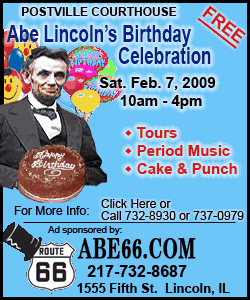| ||||||||
| ||||||||
The procession was then re-formed, and having, with Mr. Lincoln, reached the platform on the east side of the Capitol, Senator Baker said: "Fellow-citizens, I introduce to you Abraham Lincoln, President elect of the United States." This was greeted with repeated cheers. Mr. Lincoln, after a short pause, laid down his manuscript for a few moments on the table; then thrusting his hand into his pocket, took from it a pair of steel-bowed spectacles, which he placed carefully and deliberately on his nose, and used his goldheaded cane as a paper-weight during the reading of the Inaugural. Mr. Lincoln, before he came to Washington, had had an address for the occasion printed at the office of the "Springfield Journal," but that which he delivered, was somewhat different, being extensively interlined, in accordance with new developments, after the first draft. An exact copy of this was furnished to the "Associated Press" to be telegraphed. The President read his Inaugural Address in a clear, distinct voice. ... He was applauded when he concluded the reading of his Address. Never was there a more solemn spectacle. The thirty thousand auditors who listened attentively to his words, were evidently most deeply impressed with the momentous character of the occasion. There was no noise, no confusion, no thoughtless nor indecent scenes of applause or disapprobation. All seemed to be moved with the deep conviction, that their own fate and that of their country, depended on the developments of that memorable day. In taking the oath, as administered to him by the venerable Chief-Justice Taney, the President placed his hand upon the Bible, and responded in a firm and decided tone. At the conclusion, he bowed reverently, and kissed the Book.


[Associated
Press;
Copyright 2009 The Associated Press. All rights reserved. This material may not be published, broadcast, rewritten or redistributed.
News | Sports | Business | Rural Review | Teaching & Learning | Home and Family | Tourism | Obituaries
Community |
Perspectives
|
Law & Courts |
Leisure Time
|
Spiritual Life |
Health & Fitness |
Teen Scene
Calendar
|
Letters to the Editor